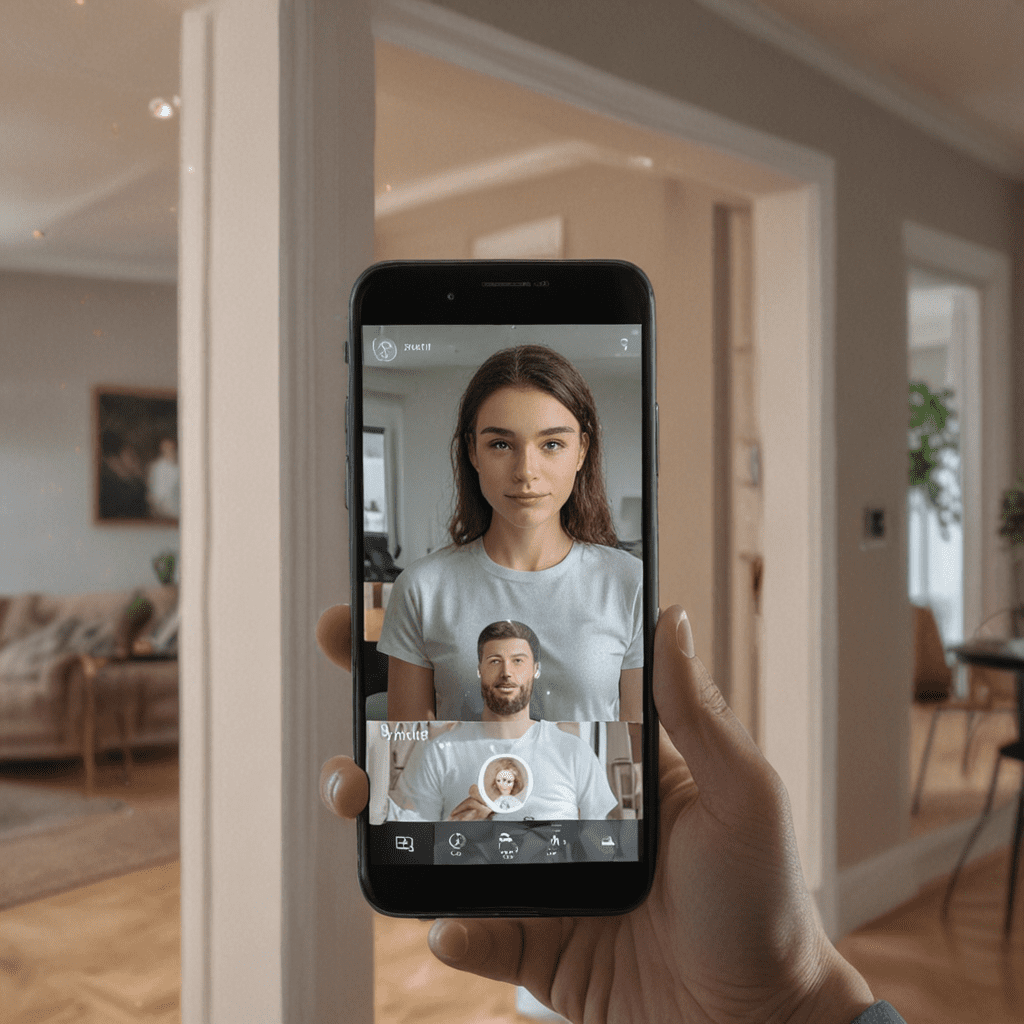Facial Recognition: The Future of Personalized Wellness Solutions
1. Facial Recognition Technology: An Overview
Facial recognition technology (FRT) is a rapidly advancing field that allows computers to identify individuals by analyzing their facial features. This technology has gained significant traction in various industries, including security, law enforcement, and retail. However, its potential extends far beyond these domains, and it is now poised to revolutionize the healthcare and wellness sectors.
FRT operates by capturing an individual's facial image and extracting unique geometric measurements from specific facial landmarks. These measurements are then compared to a database of known faces to identify the individual or estimate their age, gender, or emotional state. Advancements in artificial intelligence (AI) and machine learning (ML) have significantly enhanced the accuracy and efficiency of FRT, making it a powerful tool for personalized wellness solutions.
2. The Rise of Personalized Wellness
In recent years, there has been a growing emphasis on personalized wellness. This approach recognizes that each individual has unique health needs and goals, and that a one-size-fits-all approach is no longer effective. Personalized wellness solutions aim to tailor interventions and recommendations based on an individual's specific characteristics, preferences, and lifestyle.
By leveraging FRT, healthcare providers and wellness professionals can gain deeper insights into an individual's health and well-being. This technology enables them to create highly personalized wellness plans that address the individual's unique needs, preferences, and health risks.
3. How Facial Recognition Enhances Personalized Wellness
FRT offers a range of capabilities that significantly enhance personalized wellness solutions. It can:
Provide real-time health monitoring: FRT-enabled devices can continuously monitor an individual's vital signs, such as heart rate, respiration, and blood pressure. This data can be used to identify potential health risks and trigger timely interventions.
Assess emotional state: FRT can analyze facial expressions to infer an individual's emotional state. This information can be used to provide personalized support for mental health conditions, such as depression and anxiety.
Conduct skin analysis: FRT-powered skin analysis systems can assess skin conditions, such as acne, wrinkles, and sun damage. These systems can provide personalized skincare recommendations and track progress over time.
4. Skin Care Analysis and Recommendations
FRT-based skin analysis systems use advanced algorithms to analyze an individual's facial skin, identify skin concerns, and recommend personalized skincare regimens. These systems can:
Detect and classify skin conditions: FRT can identify various skin conditions, such as acne, wrinkles, hyperpigmentation, and rosacea.
Monitor skin health over time: By tracking changes in skin appearance over time, FRT can monitor the effectiveness of skincare interventions and adjust recommendations accordingly.
Provide personalized skincare recommendations: Based on the skin analysis results, FRT systems can recommend skin care products and treatments that are tailored to the individual's specific skin type and concerns.
6. Personalized Nutrition and Diet Plans
Facial recognition technology (FRT) can be utilized to create personalized nutrition and diet plans that cater to an individual's unique dietary needs and preferences.
Dietary recommendations based on facial features: Research suggests that certain facial features may be linked to specific nutritional deficiencies. FRT analysis can identify these features and recommend dietary interventions to address potential deficiencies.
Monitoring food intake and nutritional status: FRT-powered systems can be used to track an individual's food intake and provide real-time feedback on nutritional balance. This can help individuals make healthier food choices and achieve their dietary goals.
7. Fitness Tracking and Workout Optimization
FRT can enhance fitness tracking and workout optimization by providing insights into an individual's physical activity levels and movement patterns.
Activity tracking and calorie estimation: FRT-enabled fitness trackers can accurately measure and track an individual's physical activity and estimate calorie expenditure.
Personalized workout plans: By analyzing movement patterns, FRT systems can provide personalized workout recommendations and guidance to maximize efficiency and minimize risks for each individual.
8. Mental Health Monitoring and Support
FRT can play a role in monitoring mental health and providing support for individuals facing mental health conditions.
Early detection of mental health issues: Advanced FRT systems can analyze facial expressions and detect subtle changes that may indicate early signs of mental health disorders like depression or anxiety.
Personalized therapy and counseling: FRT can provide valuable data to therapists, helping them tailor therapy sessions and interventions to the specific emotional state and needs of each individual.
9. Sleep Pattern Analysis and Improvement
FRT-based sleep monitoring systems offer a comprehensive approach to analyzing and improving sleep patterns.
Sleep quality assessment: Advanced FRT algorithms can assess an individual's sleep stages and quality by analyzing subtle facial movements during sleep.
Personalized sleep improvement strategies: Based on the sleep analysis results, FRT systems provide tailored recommendations to enhance sleep duration and quality, such as optimizing sleep schedules and creating relaxing bedtime routines.
10. Early Disease Detection and Prevention
FRT has immense potential in the early detection and prevention of diseases by monitoring subtle changes in facial appearance.
Identification of facial cues of illness: Researchers have identified facial cues that may be associated with specific diseases or conditions, such as pale skin indicating anemia or flushed cheeks indicative of fever. FRT systems can monitor these cues and alert individuals to seek medical attention when needed.
Preventive healthcare measures: By identifying early signs of potential health risks, FRT enables timely preventive interventions to mitigate disease development and promote overall well-being.
FAQs about Facial Recognition in Personalized Wellness
Q1. What are some concerns or challenges associated with the use of FRT in healthcare?
- Privacy and ethical considerations, data security concerns, potential for bias and unfairness.
Q2. What measures are being taken to address the ethical concerns surrounding FRT and personalized healthcare?
- Development of ethical guidelines and regulations, promoting informed consent, ensuring data transparency, addressing concerns regarding surveillance and misuse.
Q3. Is facial recognition completely accurate and reliable, especially in healthcare applications?
- Accuracy can vary based on factors like lighting conditions, facial expressions, and skin color. Ongoing advancements are improving reliability.


